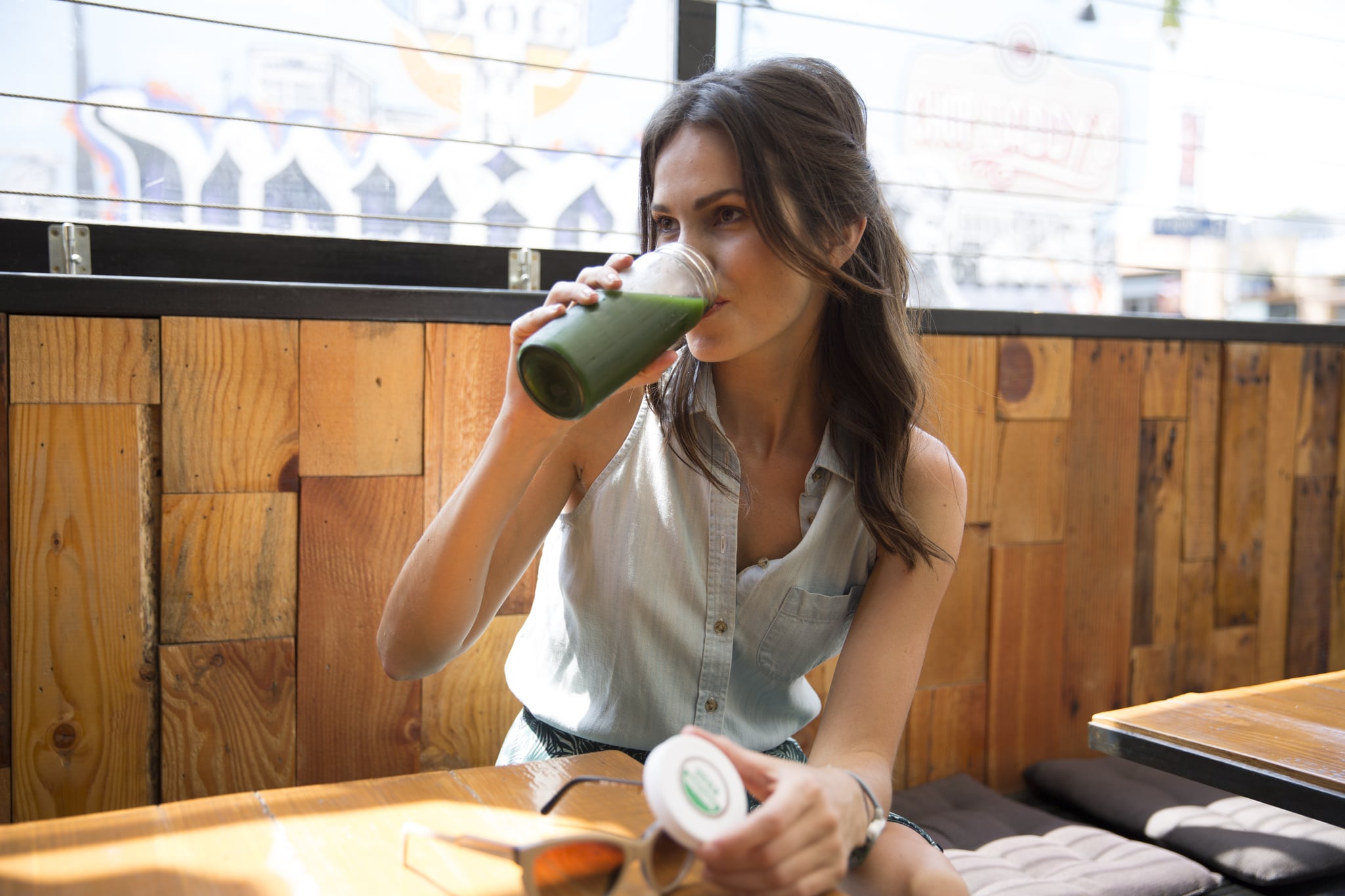
It seems like nutrition advice is constantly evolving [1]. First fat was unhealthy, then it was good again. Egg yolks were deemed bad for your heart, but now we can eat them again. Some people eat a strict Paleo diet, while others forgo animal products and eat entirely plant-based. Grains, gluten, and sugar, which used to be staples in the American diet, have been demonized in recent years.
But while nutrition is nuanced and there's no one diet that works for everyone, there are some major nutrition myths that dietitians want to bust. As research evolves, some once-held nutrition beliefs are horribly outdated. We spoke to several registered dietitians who set the record straight once and for all.
"Eating Fat Makes You Fat"
Fat was once demonized as the culprit behind America's collective expanding waistline, which ushered in the '80s and '90s low-fat craze. Turns out, that may have done more harm than good.
"Nearly two in three Americans believe that dietary fat is their enemy. But here's the truth: certain fats can actually help you lose weight [2]," Joy Bauer, RDN, CDN, told POPSUGAR. "In fact, you should go out of your way to eat moderate amounts of the good stuff, like monounsaturated and polyunsaturated fats found in nuts, seeds, avocado, fatty fish, and vegetable oils." She says these fats can help you slim down and reduce your risk for heart disease. Load up on omega-3 fatty acids like the ones found in salmon, walnuts, flax seeds, chia seeds, and nut-based oils.
"Juicing Will Help You Lose Weight"
Plenty of juice bars offer multiday juice cleanses [3], which promise to "detox" your body and help you jump-start your weight-loss goals. The problem? You end up ingesting more sugar than other valuable nutrients.
"Juicing is all the rage right now, but by squeezing out all of the juice from a fruit, you are missing out on one of the best parts: fibre! By extracting the juice from fruit, you're leaving behind the pulp, which is where the fibre is," Brooke Zigler, RDN, LD, told POPSUGAR. "fibre slows digestion, which gives you a steady blood glucose level and sustained energy. It also helps to give you more regular bowel movements, thus reducing constipation. fibre is a an important part of our diets and is also a great tool for weight loss."
Adding a few vegetable-based juices into your diet each week is a good way to get vitamins and phytonutrients; replacing entire meals or just drinking juice for days at a time is not a good idea. Better yet? Just eat the fruits and vegetables you would juice whole for a more filling, fibre-rich option.
"Fruit Has Too Much Sugar and You Should Avoid It"
As people remove sugar from their diets, they often cut out fruit, which is a source of natural sugars [4]. But cutting out sugar also means you're cutting out valuable fibre and other nutrients.
"When comparing food groups, fruits as a whole have the highest antioxidant levels of any other food group," Dina Garcia, RD, LDN, told POPSUGAR. "You can lessen your blood sugar spike by combining fruit with a food that has protein and/or fat."
"Gluten-Free Snacks Are Healthier"
Gluten-free diets have been all the rage over the last few years, with regular breads, cookies, cakes, and snacks being replaced with their gluten-free counterparts. The problem? These options aren't necessarily any healthier.
"For people with celiac disease, these foods are essential if they want a treat once in a while; however, for the rest of the population, they are completely unnecessary and can be even worse for you than their gluten-containing counterpart," Alyssa Rothschild, RDN, CDN, told POPSUGAR. "Things such as gluten-free cookies and cakes are still cakes and cookies. Also they are usually higher in sugar, fat, and other ingredients to improve their taste."
If you want a gluten-free treat, remember that it's still a treat — it shouldn't be treated as a healthier alternative to any other cookie or cake.
"Sea Salt and Himalayan Salt Are Healthier Than Regular Table Salt"
It seems like every trendy health food is now sprinkled with sea salt or pink Himalayan salt, but they actually aren't much different from regular old table salt.
"While sea salt and Himalayan have a higher mineral content than table salt, based on the amount of salt we generally use, the difference isn't even close to significant," Garcia said. "Plus, most people get the majority of their iodine intake from iodized table salt, something most sea salts and Himalayan salts are missing."
"You Need to Ban Carbs to Lose Weight"
High-protein, low-carb diets are all the rage, and many people assume they need to ditch this important macronutrient group [6] altogether to see any success on the scale.
"It's more important to look at the quality of foods that you are eating," Garcia said. "I also like to put an emphasis on the importance of eating carbs that are high in fibre. fibre helps to stabilize blood sugar levels and provides food for the beneficial bacteria in our digestive tracks."
